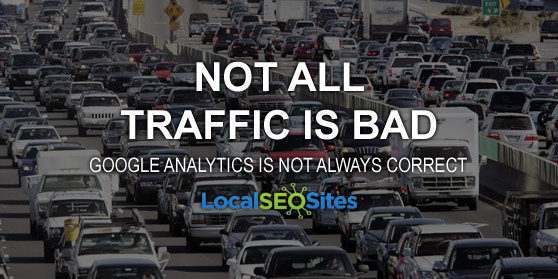If you are relying on Google Analytics to track your organic search and Google marketing efforts, the data is probably falling far short of what would be considered accurate reporting. Over the past several years, changes in analytical data have continued to make it more difficult to identify where visitors to your site are coming from. This is in part due to updates at Google along with a rise in mobile traffic which tends to get tagged incorrectly.
A Groupon Study
In order to test the accuracy of their Google analytics, Groupon conducted a one-day study. They deindexed their site from Google for an entire day and tracked the results hour by hour in order to compare their data with what was reporting on Google. This is risky but for someone as large as Groupon, they were confident that Google would index them again fairly quickly. The study was in part to determine how much of their reported direct traffic was actually from an organic search.
Direct traffic should be only from people that directly type in your URL, have the site bookmarked, or click on a link from a social media site or email campaign. In other words, direct traffic should not come from a search but they should already have access to the URL. Organic search is when someone types a search query into Google or another search engine and clicks on a non-paid listing. This is where SEO efforts shine, making a site show up as close to the top as possible for keywords or search terms. It goes hand in hand with Google marketing and paid search because statistically if you have a PPC campaign running for a keyword that also produces an organic search result, you will increase your clicks significantly.
What the Study Proved
During their study, they found that a large percentage of direct traffic was misreported. They compared the traffic to their site using the same day from the previous week. Only long URLs were compared since these are harder for people to remember and unlikely to be directly typed into a browser. After a day of an hour by hour comparison they concluded that around sixty percent of the traffic that was reporting as direct was most likely organic traffic after all. This is an important realization and one that is extremely impactful from a Google marketing and SEO perspective. Companies that are unsure of whether their SEO efforts are working may be in for a huge surprise if they suddenly stop. With Google analytics reporting that so much traffic is direct, it is misleading. If sixty percent of the average website’s direct traffic is actually through organic search that means that SEO efforts are playing a much higher role in overall website traffic than previously thought.
We do not recommend deindexing your site to run a similar test. This is definitely a risky move for the purposes of receiving data. You can, however, make some comparisons using the results that Groupon found and assume that much more of the traffic to your long URLs is probably coming from organic search.


 Crestview Dental Group Work Highlight
Crestview Dental Group Work Highlight  7 Ways Web Presence Optimization Can Generate Local Business
7 Ways Web Presence Optimization Can Generate Local Business  Top SEO Factors for Improving Your Ranking in Local Search Results
Top SEO Factors for Improving Your Ranking in Local Search Results  Time is Shrinking and Your Message Needs to Fit Within Micro Moments
Time is Shrinking and Your Message Needs to Fit Within Micro Moments  Is Your Business Benefiting From the Increase in Local Searches?
Is Your Business Benefiting From the Increase in Local Searches? 